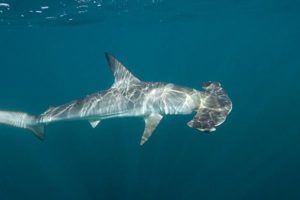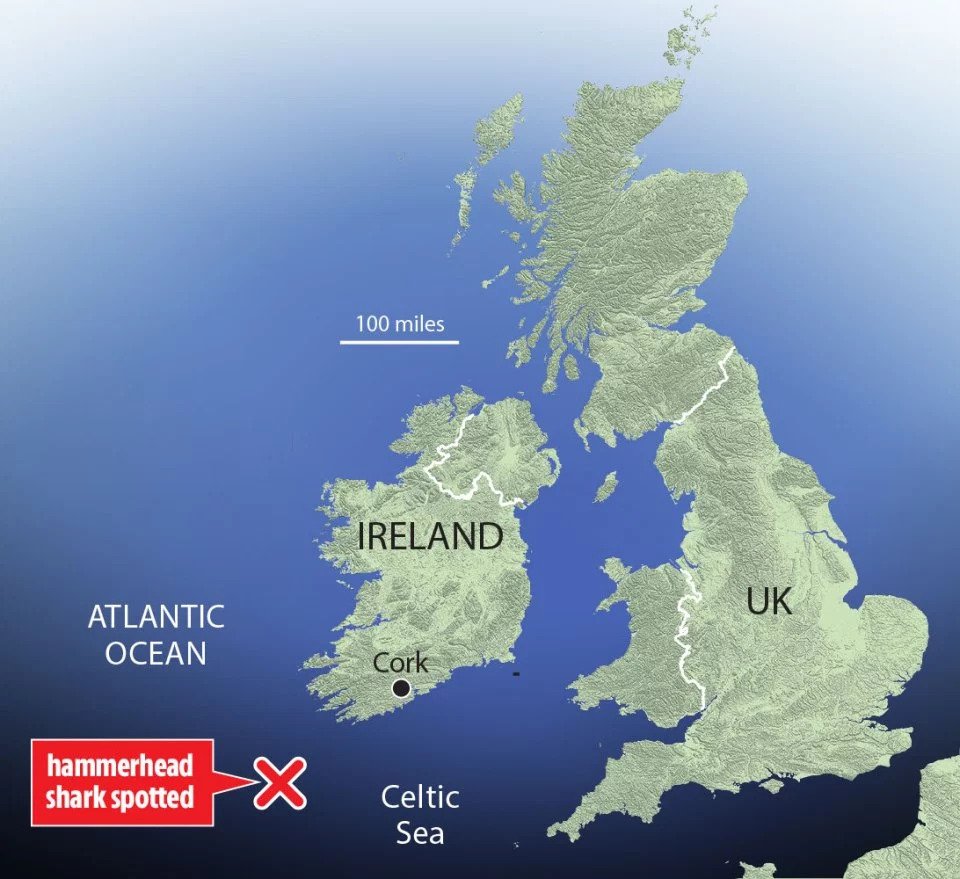
Hammerhead Shark Seen In UK Waters For The First Time Ever
For the first time, researchers from the UK spotted a hammerhead shark in the Celtic Sea, which is 100 miles away from Ireland.

Researchers from the UK saw something that has never roamed around the seas of Britain.
The Hammerhead Shark was found during a survey of herring stocks, which was being conducted by researchers of the Marine Institute of Galway, Ireland.
The herring stocks survey is conducted every year by using the RV Celtic Explorer.
But this year was different, researchers saw something that they never saw roaming in British water or any nearby area.
John Power, a mammal observer who saw the shark, said, “While scanning the ocean surface, we sighted a dorsal fin unlike anything we had encountered before. It was quite different to the fins seen on basking sharks and blue sharks. After consulting available ID keys, we agreed that the shark must be a smooth hammerhead.”
The shark is called as hammerhead shark due to its flat and hammer like head, it is called as “sphyrna zygaena” in Latin.
The sharks are capable of growing up to 20 ft. long and are known to be non-lethal, as there have been no registered fatalities from hammerhead shark attacks.
The hammerhead sharks are currently listed as “vulnerable” on the Threatened Species list of the International Union for Conservation of Nature Red List.
Due to the high demand of the illegal shark fin trade, sharks are getting slaughtered around the world, which have decreased their population.
Dr. Simon Boxall, of the Southampton Oceanography Institute, explains how the hammerhead shark appeared in British waters.
He said, “I am not aware of them [hammerheads] being seen in our waters before, but this sighting does not surprise me. Temperatures in these waters have increased by 2.5C over the last 20 years and more exotic species carried by the Gulf Stream are travelling further north for food.”
He added, “But this also means that native fish species such as cod are also being pushed further north as they lose colder waters.”